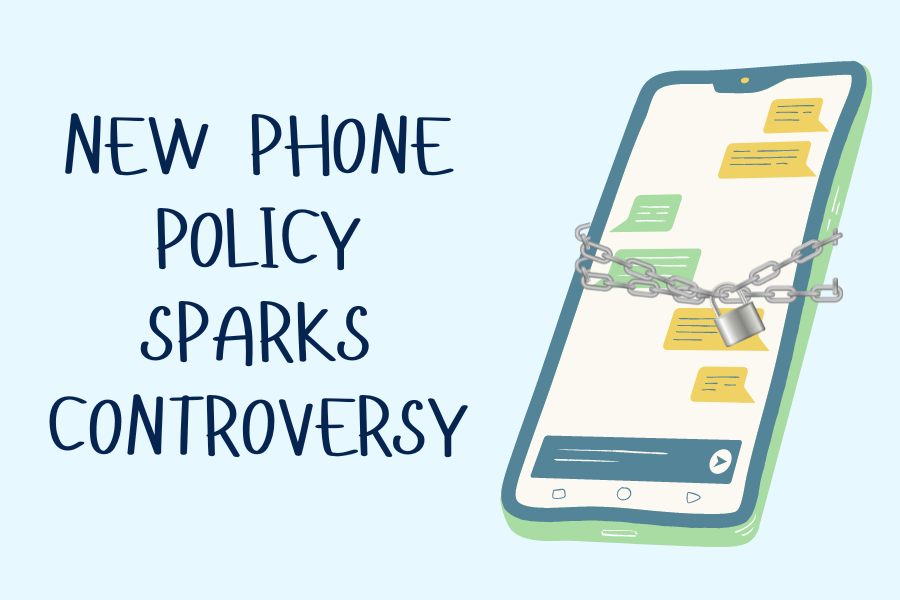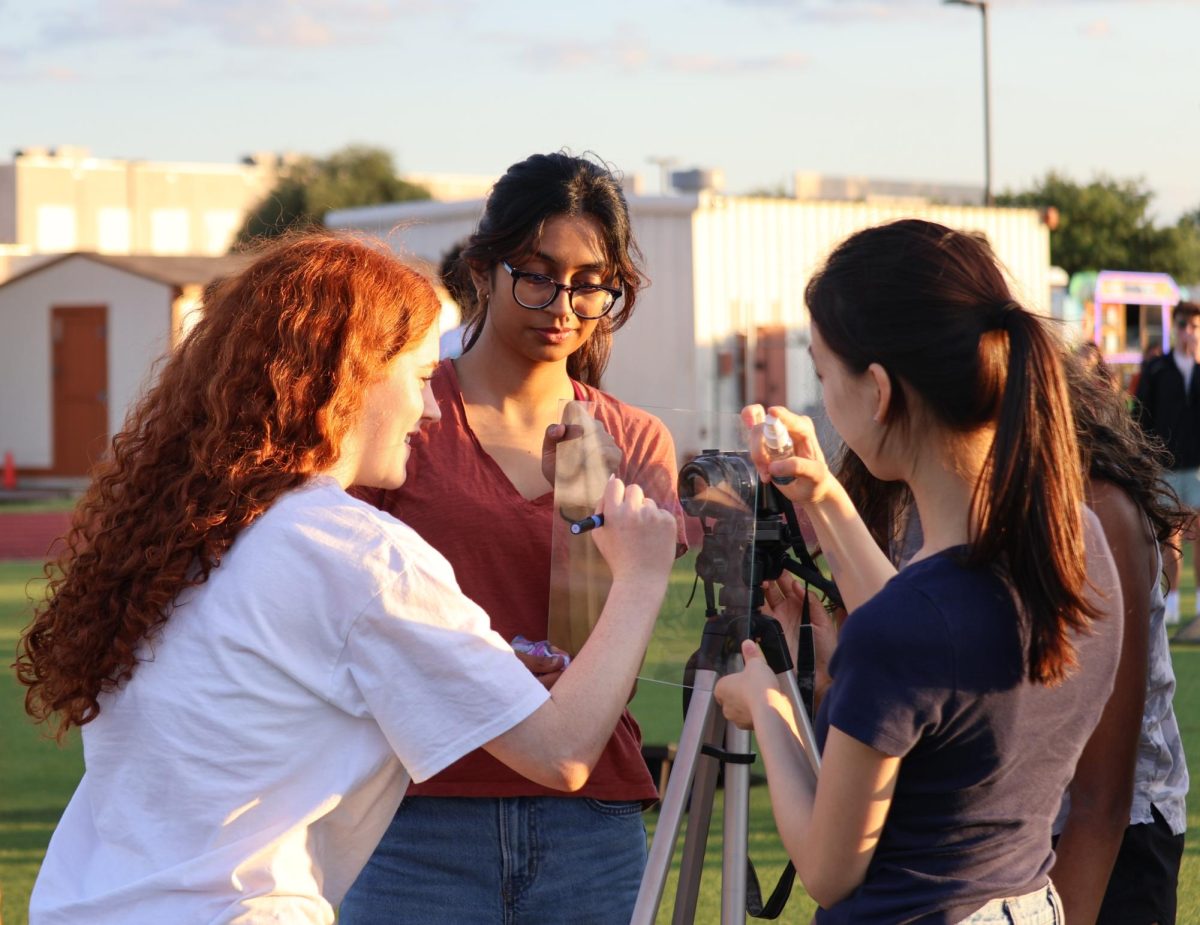In an era where teens find themselves interacting with others through a screen more often than not, the administration team is aiming to get students to have a more human connection by implementing a strict phone policy in class, making Westwood one of the first RRISD schools to do so.
Coming back from summer vacation, students were surprised to find phone caddies in each of their classrooms. Teachers announced that the school had adopted a phone policy inspired by college studies and previous practices implemented by the school’s very own LOTE department. As long as class is going on, students are expected to keep their phones in the caddy to not only help them focus in class, but encourage human interaction with their peers. For the administration, this was a decision years in the making.
“We spent a lot of time this summer looking at [college studies], because any decision we make we want to be data-informed,” IB Coordinator Ms. Christin Key said. “The research greatly shows that phones detracts from student learning and contributes to student anxiety. We really wanted to make changes that would enable our students to thrive more at school.”
Across the student body, many see the merit in the administration’s policy, acknowledging the benefits that lie beyond the initial negative shocks.
“I think it’s for the better, [because] people are prone to be more engaged with their teachers and friends because phones really pull them away from everything,” Erica Nielsen ‘27 said. “Everyone has an attachment to their phones, even I do, but I think it’s good to get away from it.”
The student body however is not a monolith, individuals have already raised the concern that the phone policy seems to overstep student’s personal boundaries, with some describing it as going too far.
“I do not like the phone policy, I paid for my phone, it’s my property. I understand they don’t want people to use phones during class and I completely agree with that, but the solution shouldn’t be forcing us to put our phones in the caddy,” Pia Poetzlberger ‘26 said. “They can [give us the choice of] putting [our phones] in the caddy or, if we would be more comfortable, putting it in our backpacks. They shouldn’t assume everyone is going to be on their phone.”
Individuals also see that there might be unintended consequences, stating the negative effects that might occur with this newly introduced policy.
“There are going to be disadvantages. I just feel like people are focused on their phone being on the wall because they feel so far away from their phone,” Poetzlberger ‘26 said. “[This leads them to] lose their attention in class and solely focus on getting their phone back.”
Still for those who are more socially reserved, they feel like their life has entered uncomfortable territory.
“While I understand that the policy was based on research, I feel like we can’t apply college studies to a high school setting,” Brooklyn Berry ‘25 said. “For introverts, and those with social anxiety, phones [and the music they play] are a form of escape from uncomfortable situations, something I think the administration should take into account.”
There are two sides to every story, and in the realm of technology, it is no different. With a diverse student body, it’s important to note that teenagers will always have various beliefs and opinions. In the eyes of the administration, growing from each new experience is what makes the four years each student spends in high school so valuable.
Acknowledging all the opinions across the spectrum, Ms. Key leaves the student body with a final note.
“Technology is always a grain of salt. It’s a great tool and it’s awesome to have all this information at your fingertips and the ability to talk to anybody at any time. But it’s about being present and international and being where you are when you’re there,” Ms. Key said. “The same is true for both students and adults. Whether it’s parenting on a late Friday night, studying before a major test, or just living life, we should take the effort to be authentically present in all aspects.”






![Holding her plate, Luciana Lleverino '26 steadies her food as Sahana Sakthivelmoorthy '26 helps pour cheetos into Lleverino's plate. Lleverino was elected incoming Webmaster and Sakthivelmoorthy rose to the President position. "[Bailey and Sahiti] do so much work that we don’t even know behind the scenes," Sakthivelmoorthy said. "There’s just so much work that goes into being president that I didn’t know about, so I got to learn those hacks and tricks."](https://westwoodhorizon.com/wp-content/uploads/2025/05/IMG_0063-1200x1049.jpg)















